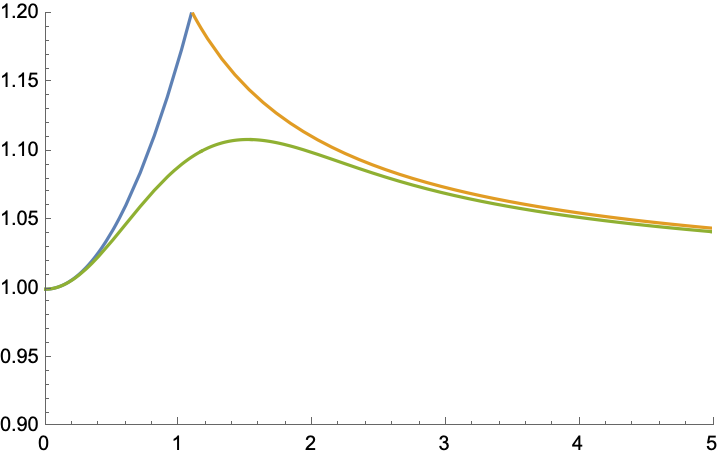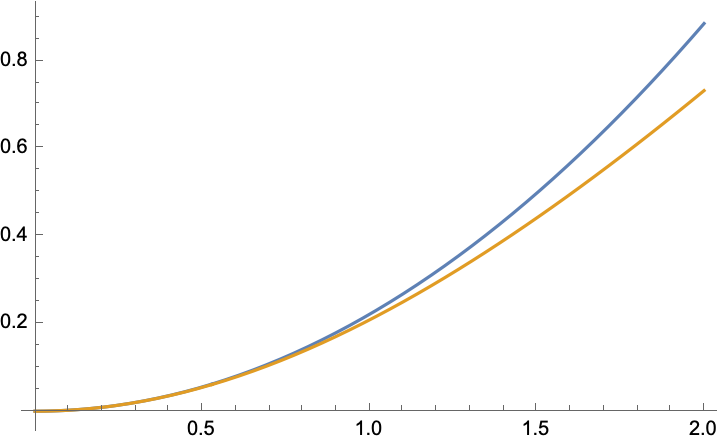If I've got $f: x \to f(x)$, one may define the Arithmetic Dissidence $\delta_A[f(x)]$ as the real value of the difference between the length following the curve of $f$ and the length of the $x$ axis (we could define it on intervals or on the whole axis). You may also want to define the Geometric Dissidence $\delta_G[f(x)]$ as the ratio of these lengths.
For example, if can be easily shown that for a function $f: x \to |x|$, $\delta_G[f(x)]=\sqrt2$.
For a distribution $\mathcal{T}(1-|x|)_{[-1, 1]}$, $\delta_G[\mathcal{T}]$ can't be different from $1$ but $\delta_A[\mathcal{T}]=2(\sqrt2-1)$.
I need to find the value for $\delta_A[f(x)]$ if it's finite for $f=\lambda e^{\frac{-x^2}{2\sigma^2}}$. Otherwise, I'd need the value of $\delta_G[f(x)]$. I've still found no way of finding these values by integrating $d\ell=\sqrt{dx^2+df^2}$ but maybe you know one way.
Thanks for your help,


